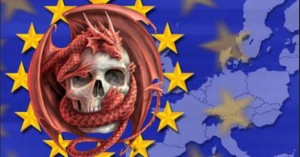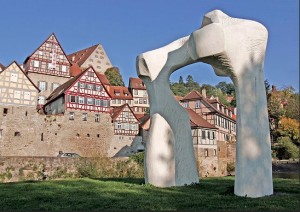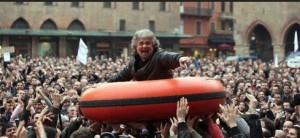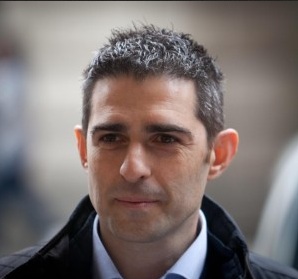Generation E
The BBC in Europe
A rare treat: the BBC is allocating a modest weekly quarter of an hour to European issues. The second Radio 4 series of five programmes is called “Generation E” fronted by Lucy Ash. It deals with the younger generation of fellow Europeans beyond the Channel and how they are “facing up to a time of economic and political crisis” while “schisms emerge”.
This sounded like an amazing surprise programme, considering that in the UK media Europe is hijacked by the Eurosceptics who always exclude themselves when talking about Europe, despite UK membership of the EU since 1973. They wish the Euro dead, together with the Eurozone and preferably all things European. They dream of the ‘beautiful drachma’ (sic) in the hope of unsustainably cheap holidays in the sun. Their sound-bites reflecting their conventional wisdom do not extend beyond the theft of UK sovereignty by the EU and a return to patriotism, nationalism, in memoriam of domination of the seas, of colonial and imperial grandeur across the whole world as was.
The five programmes bring the listener to “German’s Eldorado”, a haven for jobs in Schwabish Hall; commiserate Latvian “Loans for Life” which have lurred owner-occupiers into sub-prime mortgages; and discover political “spring” mobilised by “Five Star Idealists” in northern Italy; “Hungarian graduates trapped by the state” which imposes university fees; and Poland’s “Underground Economy” based on tax dodging.
Italy’s political spring: Five Star Idealism
The surprise waned soon enough. According to the BBC the five star movement in Northern Italy subscribes to an immediate exit of Italy from the EU or, at the very least, from the Eurozone, something that many BBC star anchors support covertly if not overtly when they mention matters European. The EU exit is presented as the most relevant objective of the five star movement mediated by a popular comic. It only transpires later that the movement aims to clean up Italian politics and eradicate corruption, money laundering and drug trafficking.
No background is given about the specificity of the Italian north and its domination by the extreme right wing Liga Norte; no reference to the link between Milan’s money drain to the Ticino tax haven in neighbouring Switzerland; no mention of the devolved regional structure of the country and Milan’s role in it; let alone any other characteristics of Italian culture which is not confined to spaghetti and pizza.
For the BBC, the blanket recipe against deep rooted corruption of Italian politics is to leave Europe, although the 22 year old counsellor on the Milan City Council, a supporter of the five star movement promises to achieve what generations before him have not managed to do. His focus is very much on local action, resorting to a broad range of local interventions, such as using social networks to mobilise young people to vote, or finger printing entrants to the wholesale food market to curb illegal practices.





